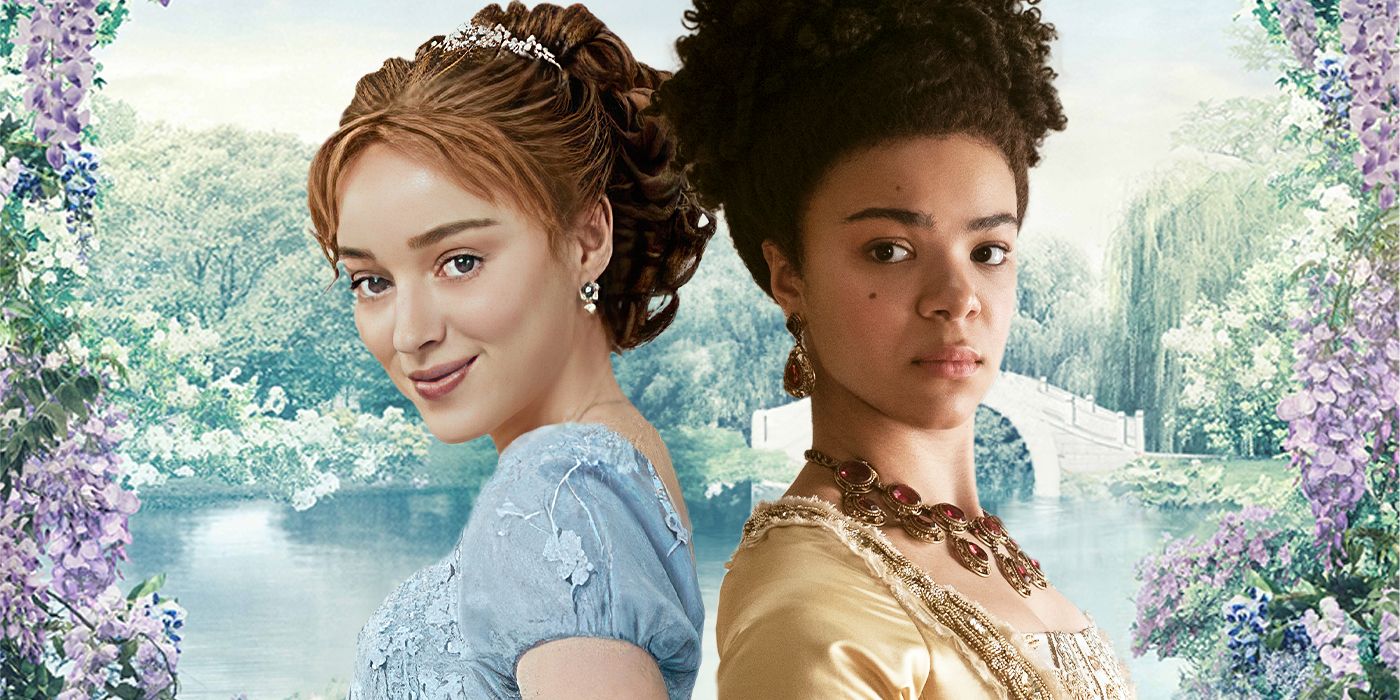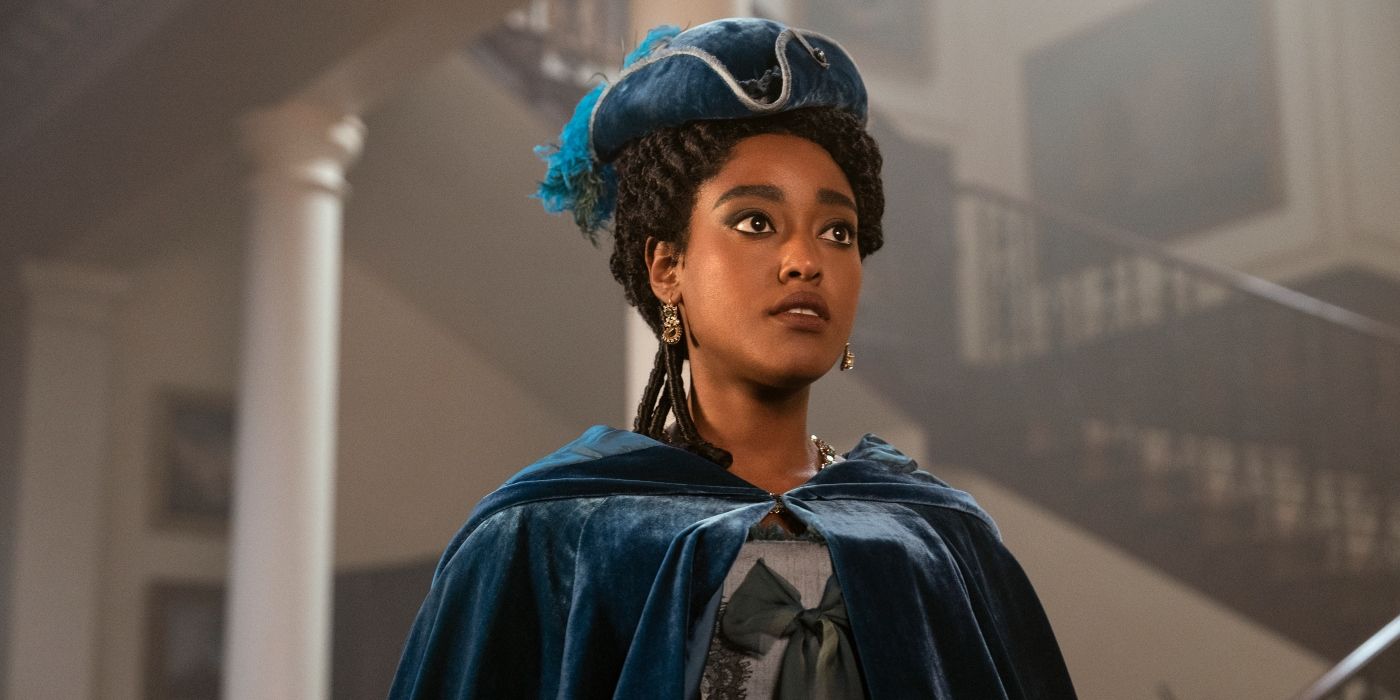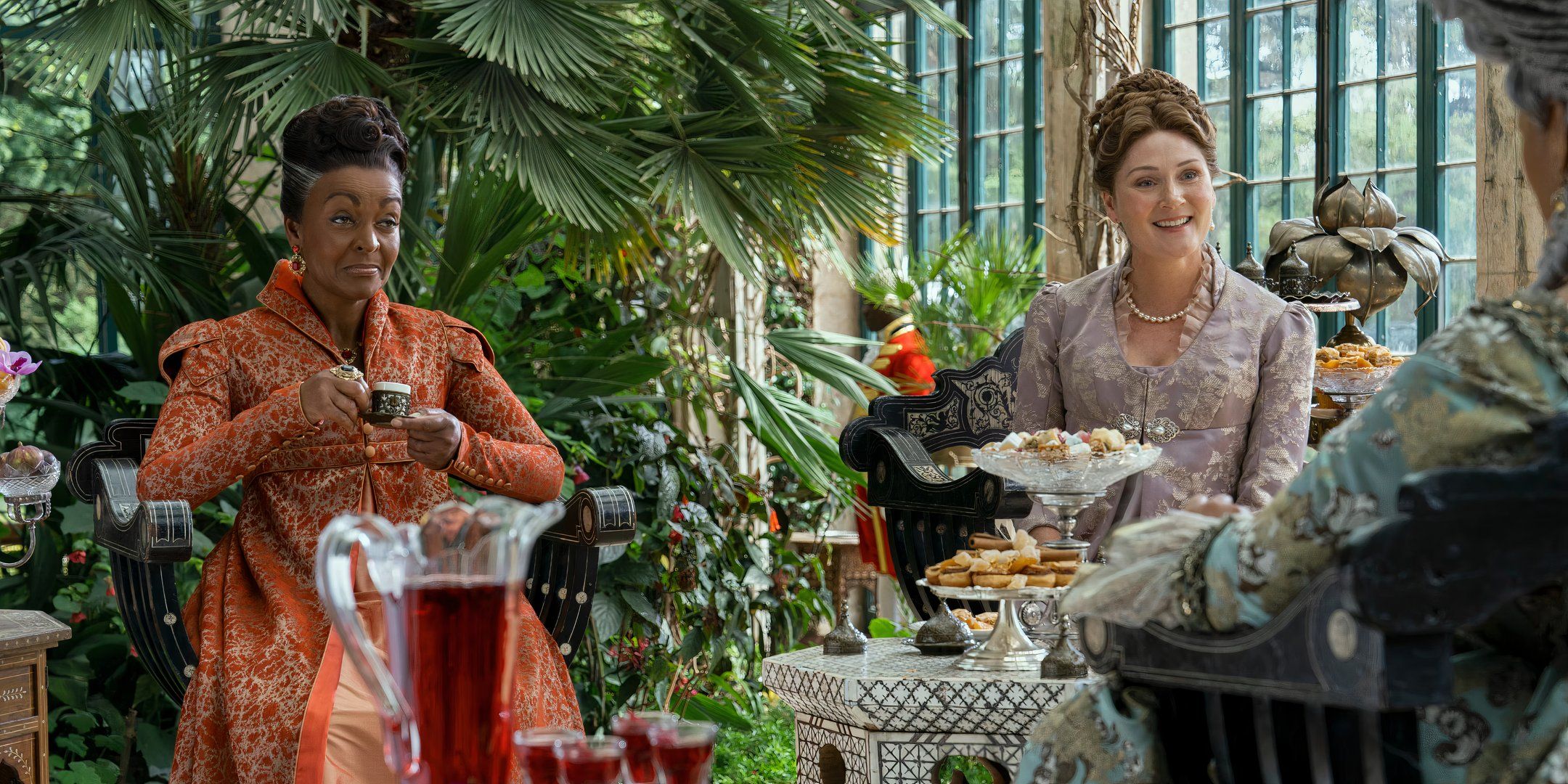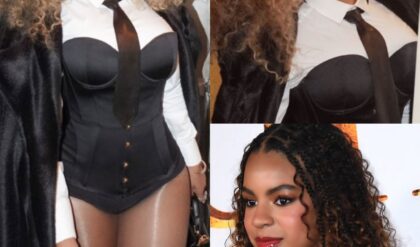
However, Queen Charlotte features three different stories that essentially represent the antithesis of what love traditionally looks like. There’s a lack of choice, of free-spirited happiness that is so prominent in Bridgerton‘s couples. But more importantly, Queen Charlotte embraces the diversity of relationships and how love doesn’t need to fit a strict code to still ring true.
‘Queen Charlotte’ Has a Messy Enemies-to-Lovers Arc
Bridgerton has explored the “enemies-to-lovers” trope in Season 2, where the main couple has their love blossom out of the ashes of mutual loathing. The show depicts the “lovers” part as inevitable, causing an undeniable pull and chemistry between two attractive protagonists that they try and fail to fight against. It’s a little bit more complicated in Queen Charlotte. Throughout the series, the younger Queen Charlotte, played by India Amarteifio, deals with the complexities of her marriage while her older counterpart, played by Golda Rosheuvel, barely sees her husband. The couple certainly has a clear enemies-to-lovers arc, but it isn’t an omniscient power that draws them together; instead, it is choice. Wed as total strangers, they aren’t given a chance for a premarital whirlwind romance as the Bridgerton couples do, apart from a brief meet-cute as Charlotte tries to escape the wedding.
The two only really get to know each other after the wedding and, with careful secrets being unveiled, the pressure on their relationship is suffocating. The only way for them to survive the responsibilities of the crown and King George III’s (Corey Mylchreest) mental health condition is to choose to love each other. We particularly see this in Charlotte, who simmers in resentment throughout more than half the show before she obstinately decides to hurry to Kew and support the King. She chooses to love because not doing so will threaten the monarchy and herself; it’s almost an act of self-preservation. This choice distinguishes them from the Bridgerton couples. Although the other pairs have their choices of a partner limited to the ton, they still have a choice of whom they were to marry, whether it be an undeniable love connection or a more strategic one. Charlotte, however, doesn’t have a choice of a partner — it is either marry George or don’t — and when she does, her only viable choice is to love George, because the other option is inconceivable.
Just because it is seemingly the last resort doesn’t mean their love isn’t love. Borne out of trials and tribulations, Queen Charlotte’s choice to love the King is simply another form of love. Despite her instinct for survival, she truly wants George to succeed, becoming his primary support system and devoting her life to his care and reign. And this love rewards her as well, as we see their intimate moments of happiness among the despair. The show solidifies their love in the final scene of the show, where Charlotte recreates one of her moments with George and lays underneath the bed, inviting him to “hide from the heavens” with her. This bittersweet moment encapsulates the hardships and triumphs of their marriage — all because Charlotte “did not go over the wall” and chose to love instead.
Lady Danbury Begins to Love Herself in ‘Queen Charlotte’

But Lady Danbury’s story isn’t about her traumatizing marriage or spontaneous romance; it’s about her relationship with herself. During her marriage, she is constantly overshadowed by her husband and never gets credited for what she achieves. Yet after his death, her excitement is brief, leading to feelings of emptiness and disorientation. As a woman, her identity has been dependent on her husband and subsequently, the loss of him leads to the loss of herself. Meeting and losing Violet’s father is the catalyst that cements Lady Danbury’s decision to remain unmarried and also incites her journey to create an identity for herself. We watch her grow in confidence from when she breaks down in front of Princess Augusta (Michelle Fairley) to turning down a proposal from Charlotte’s brother Adolphus (Tunji Kasim). This is possibly the most anti-Bridgerton relationship of all, focusing on a blossoming romance with the self instead of between a couple, and proposing that it is possible for a woman to live and thrive independently of a man in that era while still having love in her life.
Lady Bridgerton’s Garden Is in Bloom in ‘Queen Charlotte’

Although we never really see Lady Bridgerton’s “match made in heaven” love with her husband, Bridgerton Season 2 allows us to witness her incredible grief and sorrow in the background of Anthony’s reliving of the traumatic memory. By the way the couple is described throughout both shows, it is the epitome of a Bridgerton romance, but the original show tends to end seasons in “happily ever after” and doesn’t usually address what happens in the “after.” So when Lady Bridgerton proclaims that her “garden is in bloom,” it is certainly a surprise to Lady Danbury, but a pleasant one.
The prequel explores life post-epic romance and the tricky subject of when it is okay to move on after mourning a past love. Bridgerton couples are framed in a way that another romantic partner for each person seems inconceivable, whereas Queen Charlotte doles out the often ignored reality of wanting to love and be loved after loss. Perhaps a new Bridgerton romance is in Violet’s future? Her current storyline asserts her present sexuality and desires are natural and do not taint her past relationship with Edmund (Rupert Evans), which will forever remain untouched and beautiful.
Queen Charlotte‘s romances are clouded by secrecy and darkness but have the passionate light of love seeping through. Whether it be choosing love, healing one’s love for the self, or anticipating new love after loss, each kind is readily embraced by the series. Even the queer romance between Brimsley (Sam Clemmett) and Reynolds (Freddie Dennis) differs from the traditional representation of love in Bridgerton, fitting right into the series that celebrates diversity in relationships. Queen Charlotte‘s romances are anti-Bridgerton mainly due to their complexity, but at the core of each relationship in both shows, there is only pure and true love.





